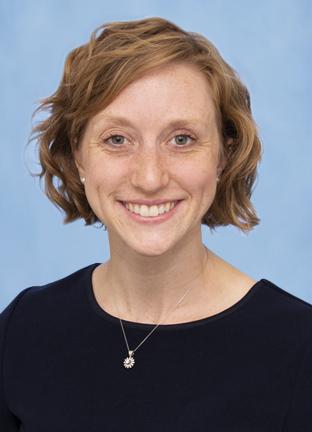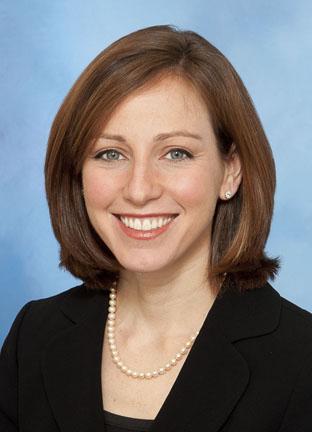
Mentorship is the catalyst for professional growth.
Mentorship is consistently cited as a critical element of professional development. Numerous studies have demonstrated a clear relationship between successful mentorship and achievement. As a result, there is a growing interest in identifying effective and efficient mentorship models in order to ensure the growth of individuals joining an organization. This is particularly true for academic disciplines given the investment required to launch a career and the opportunity costs of attrition.
As surgeons, our clinical training prepares us well to manage complex clinical problems and care for patients. However, the focus of academic development time in residency often centers on short-term academic productivity, rather than development of the long-term vision and skill set needed to launch an academic career. Once beginning in practice, identifying the necessary resources, mentors, collaborators, and avenues for success is challenging. There is little time to learn the nuances of managing research and clinical teams, financial planning and creating sustainable budgets, and building clinical programs. Although professional development resources are commonly available on academic campuses, many are not tailored to the demands unique to academic surgery, and may not be uniformly accessible.
In academic surgery, individualized mentorship models are the norm, in which a senior or mid-career faculty member guides a mentee who is earlier in their career. The mentee often has multiple mentors, but may infrequently convene mentors to meet as a group. Individualized mentorship is advantageous in that mentor-mentee relationships are formed organically, particularly if they develop outside of structured mentoring programs. One-on-one meetings can create flexibility for meeting and privacy for mentors and mentees to discuss topics with candor. However, coordinating multiple mentors can become disjointed. Individual mentors may have an incomplete view of the mentee’s progress, and the messages from various mentors may conflict, causing confusion rather than promoting success.
In contrast, group mentorship models in which a team of mentors convenes regularly with a mentee have become increasingly popular. For example, at the University of Michigan, the ADVANCE Program has facilitated numerous launch committees (or group mentorship teams) for faculty members entering positions in fields such as engineering, humanities, and social sciences (http://advance.umich.edu/launch.php). Compared with individuals who have not participated in this program, early career faculty members achieved earlier acquisition of resources for research with fewer challenges and greater connections with faculty in other departments. Faculty also reported that launch teams provided support and advocacy, advice from faculty members of different academic backgrounds, and the opportunity for close mentorship with defined metrics for accountability.
Our Approach
The Faculty and Resident Launch Program within the Department of Surgery at the University of Michigan is a longitudinal program that implements a team-based approach to the mentorship of residents and faculty members. The program is designed to tailor flexible elements to structured mentorship, which address an individual’s specific professional and personal needs. Launch teams are not intended to replace mentorship by individual mentors within or outside of the launch team. Instead, launch team meetings aim to complement individual mentoring relationships, provide synergy across mentors, and leverage the power of cognitive diversity. The structured model for mentoring intentionally engages mentors within and outside of surgery in order include diverse and multidisciplinary perspectives and expertise.
Individuals within the mentorship team are identified by the mentee and faculty advisors to intentionally select mentors with expertise in a variety of areas that will complement one another and facilitate the mentee’s growth. A faculty mentor within the team serves as a lead to coordinate the meeting agenda and structure with the mentee, assign tasks and deliverables to mentors, and ensure a vibrant and inclusive discussion. To do this successfully, important decision points include the frequency of meetings, agenda creation, creating and assigning tasks for mentors and mentees, and recording minutes of the meeting. In-person team meetings occur every other month, with video-conferencing as needed to ensure as many members as possible can attend.
Launch Teams focus on key aspects of professional growth and development, in each of the following domains (depending on the individual’s focus): clinical, education, and academic. The goals, metrics, and deliverables for each meeting and academic year are created by the mentee and the team leader. For faculty members, the launch team program will support the mentee for 3 years. For residents, the launch team program will support mentees for 1-2 years during their academic development time. Launch team mentors serve at least a 1-year period, and team members are added in subsequent academic years depending on the needs of the mentee and the team.
Typical meeting topics include:
- Clinical: case mix, volume, resources, scheduling, acquisition of new techniques, attendance of appropriate clinical meetings for intended career path, sponsorship and networking
- Education: volume of teaching experiences, formal and informal teaching roles within the Department and Institution, development of teaching skills
- Academic: research portfolio and focus, grantsmanship and funding, resources and space, utilization of resources and funding
- Leadership: management and organizational skills, career goals, professional strengths, professional organization roles and responsibilities (strategic meetings, committees, involvement)
At each meeting, mentees are responsible for presenting professional goals, projects needing feedback, and challenges met, including both research and clinical endeavors (example: progress building aspects of clinical practice). Mentors are responsible for supporting the mentee by offering clinical and/or academic mentorship, sponsorship when opportunities arise, and a broad perspective on achieving professional goals in the early years of practice.
Next Steps
We are continually evaluating these programs to ensure we are meeting the needs of our faculty and residents. Although team-based mentorship has clear advantages, coordinating meetings among launch team members is often challenging. In addition, in order to accelerate professional development, it is critical to ensure the meetings center around the goals and obstacles of the mentee, rather than a periodic summary of progress. Nonetheless, we believe that this program will offer a new pathway to foster clinical and academic productivity for faculty members and residents in their early years of practice, and enhance professional satisfaction and quality of life. Going forward, continuing to identify innovative approaches to mentorship and sponsorship will us to develop leaders in surgery poised to create transformational change locally, regionally, and nationally.
Article by Calista Harbaugh, MD (Twitter: @harbauc) and Jennifer Waljee, MD, MPH (Twitter: @waljeejenn)

Calista Harbaugh, MD, MS

Jennifer F. Waljee, MD, MPH, MS
Contact Us
Reach out to join the conversation or to learn more about how to implement the Michigan Promise. Connect with the Department of Surgery or our faculty on Twitter to share your ideas or get in touch with the Office of Faculty & Resident Life to schedule a Michigan Promise presentation at your institution. You can also fill out our Michigan Promise Inquiry Form with any questions or comments.
Department of Surgery
2210F Taubman Center
1500 E. Medical Center Dr.
Ann Arbor, MI 48109
Phone: 734-232-5528
Email: [email protected]
Twitter: @UMichSurgery
Hashtag: #MichiganPromise

